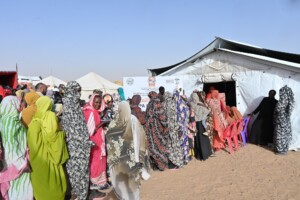Govt. and economists disagree on Sudanese inflation levels
The Sudanese Central Bureau of Statistics has announced that inflation rates have risen to 12.85 per cent from 10.15 per cent during April. However economists say it is much higher.
The Sudanese Central Bureau of Statistics has announced that inflation rates have risen to 12.85 per cent from 10.15 per cent during April. However economists say it is much higher.
Economic analyst Kamal Karrar says that Sudanese inflation exceeds 50 per cent, and has accused the Sudanese Government of “misleading the public opinion seeking to improve the appearance of the economy”.
He attributes the high inflation rate to “the government financing the budget deficit by printing paper currency without any consideration of economic growth, in addition to the collapse of the Sudanese Pound against foreign currencies”.
Karrar said that the Sudanese Pound has lost more than 80 per cent of its value since the secession of South Sudan.
Regarding the dangerous effects of rising inflation rise on citizens’ livelihood, he said that it causes high rates of poverty, a gap between income and spending, high rates of migration and unemployment, which leads to economic collapse.
Karrar downplayed the effect of foreign currency being pumped into the markets by the Bank of Sudan on the price of the Pound, pointing out that “the administrative and political solutions cannot address the economic crisis… the Sudanese Pound can only rise again if productivity of exports increases.”
He believes that the only remedy to the current economic crisis is by changing the current government, “which pursues a parasitic approach to the management of the economy which is based on traders taking advantage of the economic crisis.”
“Workers’ income covers only one fifth of their livelihood needs…”
Salahuddin Gurnas, the head of Sustainable Development in Khartoum State, says that workers’ income covers only one fifth of their livelihood needs.
Speaking at a forum on citizen’s livelihood, Gurnas said that the government has focused on increasing taxes and imposing fees and royalties at the expense of the citizen. He added that the per capita income does not even cover 20 per cent of the livelihood needs, while prices and poverty rates continue to rise.











 and then
and then